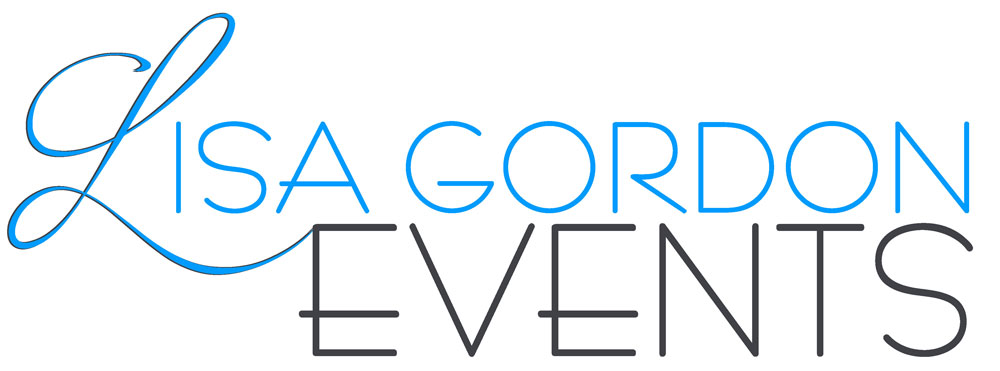May 22, 2017 | wedding planning
 I’m on a roll with time management lately. This is where to find Part I and Part II of the series.
I’m on a roll with time management lately. This is where to find Part I and Part II of the series.
Here’s one more thought for you on time management, and then you’ll know much of what I know. This one’s a doozy, though, and most people don’t like to admit that it’s true, so brace yourself:
There won’t be more time later. In fact, there will probably be less time later.
It’s always tempting to think that after some event or after some project is finished, there will be more time to work on whatever it is that you are putting off. This is a fallacy, and the reason is that if there isn’t enough time for everything now, then things are being put off until later. And that means that on top of all the stuff that belongs in the future, you’re adding stuff from the present. And that means that there won’t be more time. There will just be more to do.
If you find this depressing (and some people do), just remember that you can do something about it: Get at least one thing off the list today. That is one thing fewer you’ll be doing in the future, when there’s less time for it.
May 15, 2017 | wedding planning

Good planning has great results! Photo by Ann Oleinik.
If you’re looking for Part I on time management, you can find it here. This week, I have a few more thoughts on the subject that I hope you’ll find useful.
Once you have your overall timeline in place, try to stick to it. It might be tempting to jump around from project to project, but I find it works better to finish one thing before going on to the next. It helps you to focus on what you’re doing so that you don’t overlook the details and it also gives you a nice feeling of accomplishment when you check a project off your list.
Another trick is to use tiny scraps of time to best advantage. If you have ten minutes while you’re waiting for an appointment, think of a small job you can get out of the way in time that might otherwise be wasted. Look up reviews for a make-up artist you’re interested in or scan Pinterest for decor ideas. Using these little bits of time can add up to a whole lot in the grand scheme.
But don’t worry! You can get it all done in time.
May 15, 2017 | wedding planning
 If you’re looking for Part I on time management, you can find it here. This week, I have a few more thoughts on the subject that I hope you’ll find useful.
If you’re looking for Part I on time management, you can find it here. This week, I have a few more thoughts on the subject that I hope you’ll find useful.
Once you have your overall timeline in place, try to stick to it. It might be tempting to jump around from project to project, but I find it works better to finish one thing before going on to the next. It helps you to focus on what you’re doing so that you don’t overlook the details and it also gives you a nice feeling of accomplishment when you check a project off your list.
Another trick is to use tiny scraps of time to best advantage. If you have ten minutes while you’re waiting for an appointment, think of a small job you can get out of the way in time that might otherwise be wasted. Look up reviews for a make-up artist you’re interested in or scan Pinterest for decor ideas. Using these little bits of time can add up to a whole lot in the grand scheme.
But don’t worry! You can get it all done in time.
May 8, 2017 | wedding planning

Good planning has good results. Photo by Johnny Knight.
As you might imagine, I know a thing or two about time management. I’d like to share some tips with you. While these are applicable to just about everything in life, they are especially useful when it comes to wedding planning.
It’s tempting to procrastinate on projects until you’re close to the deadline, but that tends to be a bad idea for event planning. One way to avoid that syndrome is to set yourself mini-deadlines. For example, you could say that you want to have an officiant hired by a certain date and a florist figured out three weeks later. And don’t wait until the deadline to start working on the project. You can save yourself many headaches by working slowly and steadily. It doesn’t give you an endorphin rush, but it doesn’t give you ulcers, either.
If you’re having trouble setting yourself deadlines, you might want to consider working with a professional who is good at that sort of thing. It’s not everyone’s best skill, so hiring someone to complement your skill set could be a very smart move.
If you are happy working by yourself, here’s another tip: I find that the easiest way to make a timeline is to work backwards. Start with your final deadline (the wedding day!) and work back through everything that needs to be done. Be realistic–or perhaps pessimistic–about how long it will take to do things. And if you miss a deadline, it’s important to simply forgive yourself and keep working.
And remember, these are only guidelines, not iron-clad rules, and sometimes the best way to stay on track is to break the rules. But if you need some guidance, these are a good place to start.
May 8, 2017 | wedding planning
 As you might imagine, I know a thing or two about time management. I’d like to share some tips with you. While these are applicable to just about everything in life, they are especially useful when it comes to wedding planning.
As you might imagine, I know a thing or two about time management. I’d like to share some tips with you. While these are applicable to just about everything in life, they are especially useful when it comes to wedding planning.
It’s tempting to procrastinate on projects until you’re close to the deadline, but that tends to be a bad idea for event planning. One way to avoid that syndrome is to set yourself mini-deadlines. For example, you could say that you want to have an officiant hired by a certain date and a florist figured out three weeks later. And don’t wait until the deadline to start working on the project. You can save yourself many headaches by working slowly and steadily. It doesn’t give you an endorphin rush, but it doesn’t give you ulcers, either.
If you’re having trouble setting yourself deadlines, you might want to consider working with a professional who is good at that sort of thing. It’s not everyone’s best skill, so hiring someone to complement your skill set could be a very smart move.
If you are happy working by yourself, here’s another tip: I find that the easiest way to make a timeline is to work backwards. Start with your final deadline (the wedding day!) and work back through everything that needs to be done. Be realistic–or perhaps pessimistic–about how long it will take to do things. And if you miss a deadline, it’s important to simply forgive yourself and keep working.
And remember, these are only guidelines, not iron-clad rules, and sometimes the best way to stay on track is to break the rules. But if you need some guidance, these are a good place to start.
May 1, 2017 | wedding planning

Someone has to keep track of all the little things. Photo by T & S Hughes Photography.
I was at a wedding show recently talking to couples who were about 15 months away from their weddings. What I heard from them, over and over, was, “Oh, I don’t think we need a planner.”
What they didn’t know yet is that I get a lot of calls from couples who are about 3 months away from their weddings, saying, “We had no idea we would need a coordinator!”
If you’re in the very beginning stages of wedding planning, let me help you out. Here are a few of the reasons you will likely say, “We need a planner/coordinator!”
Reason #1: Wedding schedules baffle most people. While I find them a breeze, about 95% of my clients need help making up a schedule for their wedding day. It’s nothing to be ashamed of: It’s a specialized skill. If you don’t know how to create a wedding day schedule, your planner or coordinator does.
Reason #2: Someone has to keep track of all the stuff. You’re probably dreaming about all the little things that will help make your wedding day special and unique. There are the place cards, the guest book, the favors, the centerpieces, the card box, the programs, the candles, the decorative objects, and so many other things. Who is going to make sure that every object is in the right place at the right time? Who will keep track of things and make sure that everything is set beforehand and packed up at the end of the night? There’s one easy answer: Your day-of coordinator!
Reason #3: A planner or coordinator is an insurance policy with your vendors. You’ve hired all these terrific vendors to help you entertain your guests. You have a caterer and a DJ and a florist and a photographer. Chances are, they will do a great job, since most wedding vendors are dedicated professionals. But what if someone is late or forgets what you want? Having a coordinator who works only for you to help them or remind them of what your wishes are can make all the difference between a good wedding day and a great one.
Reason #4: Your planner or coordinator will solve problems–and often can prevent them in the first place. My primary job, as your wedding coordinator, is preventing and solving problems. I doubt there has ever been a wedding since weddings began where something hasn’t gone wrong. Sometimes it’s something large; sometimes it’s a few small things. But there’s always something. If you don’t want to have to worry about that, you need someone there whose job it is to make things right. Hiring a professional means you have a designated person for exactly that purpose–someone who is focused on the job alone and not also emotionally involved in your wedding day.
There are lots of other good reasons you might consider hiring a planner or a coordinator, but these are a few that you might not have thought of yet. So, in addition to the financial benefits of hiring a coordinator, there are many practical reasons to do so. What are you waiting for?
 I’m on a roll with time management lately. This is where to find Part I and Part II of the series.
I’m on a roll with time management lately. This is where to find Part I and Part II of the series.

 If you’re looking for Part I on time management, you can find it here. This week, I have a few more thoughts on the subject that I hope you’ll find useful.
If you’re looking for Part I on time management, you can find it here. This week, I have a few more thoughts on the subject that I hope you’ll find useful.
 As you might imagine, I know a thing or two about time management. I’d like to share some tips with you. While these are applicable to just about everything in life, they are especially useful when it comes to wedding planning.
As you might imagine, I know a thing or two about time management. I’d like to share some tips with you. While these are applicable to just about everything in life, they are especially useful when it comes to wedding planning.
Recent Comments